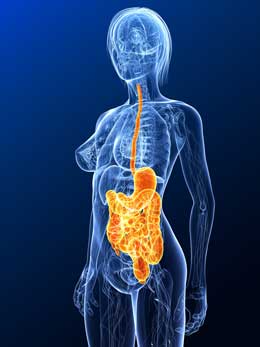



“Creating a scientific culture that compels consideration of sex in shaping the immune response is essential to a comprehensive understanding of health and disease.”
The female predominance in autoimmune disorders (greater than 85% female in Sjogrens, lupus, Addison’s disease, and scleroderma, plus 60-75% female in rheumatoid arthritis) is well known, yet studies examining why this is so are remarkably rare. The researchers in this review article suggest it’s about time to look at this pattern more closely.
The authors didn’t note an equally strong female bias in fibromyalgia or chronic fatigue syndrome or in cardiovascular disorders such as postural orthostatic tachycardia syndrome (POTS) and orthostatic hypotension (OH) which also appear to be autoimmune in nature.
The question is why women tend to come down with autoimmune disorders and what insights this might provide for the female gender dominant (and possibly autoimmune) disorders such as chronic fatigue syndrome and fibromyalgia.
Stronger More Complex Immune System in Women Has a Downside
Their stronger and more complex female immune system results in women being less susceptible to infection, but once women get an infection they appear to have more trouble recovering from it. The high predominance of women in post-infectious mononucleosis (IM) triggered ME/CFS suggests, for instance, that men recover much more easily from IM than do women.

Women can fight off pathogens more effectively than men, but an increased risk of autoimmunity may be the cost of having a more aggressive immune system
Not only are women much more inclined to get an autoimmune disorder, but they also get them at an earlier age. Lupus typically occurs 5-10 years earlier in women than men.
Plasmcytoid dendritic cells (pDC’s), macrophages, invariant natural killer cells are all parts of the innate immune system that appear to be highly influenced by female hormones. Each provides the opportunity for drug development options that target an over-active immune system.
It’s not just the woman’s immune system, however; research suggests that the complex interaction between their hormones and their immune system plays a role.
The Effect of Female Hormones
The authors suggested that high hormone levels (estrogen) affect an inflammatory regulator that could push the system towards autoimmunity and account for the female dominance in lupus. Recent research also suggests estrogen regulation of B-cells may set the stage for rheumatoid arthritis.
On the other hand the higher progesterone levels during pregnancy appear to confer protective immune effects involving Treg cells (see below). I know of one person whose ME/CFS was reduced markedly with progesterone.
Several studies have not found levels of estrogen or progesterone in ME/CFS or Fibromyalgia. One study did find evidence of increased progesterone metabolites in ME/CFS.
Gordon Broderick’s models suggest the issue is more complex that simply high or low hormone levels. They suggest females are more likely to get stuck with ME/CFS because their sex hormones are more likely to push the HPA axis and immune system into a suboptimal steady state. Broderick’s model of chronic fatigue syndrome requires both high hormone levels (estradiol) and a malfunctioning HPA axis.
In his attempts to map out the interactions that cause disease Broderick is ploughing new ground not just in ME/CFS and GWI, but in the medical field generally. He’s focused on identifying ‘breakpoints’ that can be manipulated which will tilt the system back to normal. These breakpoints are not necessarily synonymous with abnormal levels of a hormone or cytokine, but sometimes involve substances that are found in normal levels that nevertheless have a dramatic effect on a dysregulated immune or other network.
Protective Effects of Testosterone
In Broderick’s model, male hormones protect men from coming down with ME/CFS, and some evidence suggests the same is true for autoimmune disorders.
Declining testosterone levels in men as they age may place them more at risk for rheumatoid arthritis and multiple sclerosis. They may also be responsible for the gender parity seen in RA by age 75, and could explain why men tend to get multiple sclerosis at a later age than women. Low testosterone levels played an important role in Broderick’s model of Gulf War Illness as well. Low androgen levels in both men and women also appear to put them at risk for autoimmune disorders. Castrating mice results in them having higher incidences of autoimmune disorders.
The evidence for the protective effects of testosterone for autoimmune disorders is preliminary, but alternative health practitioners often find low testosterone levels in men with ME/CFS and prescribe testosterone for them.
Immune Shifts During Pregnancy Provide Clues
“While many studies of autoimmune and infectious disease pathogenesis report changes in immunological factors over the course of pregnancy, few studies consider the role that hormones play in orchestrating these immunological changes” Robinson and Klein
Autoimmune disorders often go into remission during pregnancy but then worsen in the postpartum period. From half to three quarters of pregnant women with RA go into partial or even full remission during pregnancy. Doctors report that about 30% of pregnant mothers with ME/CFS experience significant remissions.

Major shifts in immune and hormone functioning during pregnancy result is significant percentages of women with autoimmune disease feeling better.
Check out the Pregnancy Talk video to listen to a woman whose severe ME/CFS almost completely disappeared during each of her three pregnancies, and the comments indicating that some women with ME/CFS get worse. One study suggested that most women with fibromyalgia get worse, not better, during pregnancy.)
The question, of course, is why some women with autoimmune disorders and ME/CFS feel so much better during pregnancy (and is there a way to bottle that?). Hormones clearly have a role, and so does the immune system.
During pregnancy a woman’s immune system undergoes vast shifts as it develops a tolerance for a fetus that differs markedly from it, and as it shifts to a more anti-inflammatory profile. It makes sense that an autoimmune disorder might wane as a pregnant woman’s immune system pulls back on its immune surveillance of ‘other’ cells.
The downside of this is that as a woman’s immune surveillance wanes during pregnancy their incidence of infection increases (suggesting an infection could play a role in women for whom pregnancy triggered their ME/CFS).
Treg Cells
Thus far there are some clues but no concrete answers. Elevated frequencies of T regulatory cells that peak in the second trimester could play a role and provide a link to ME/CFS. Altered levels of Treg, NK, B, and T-cells in a recent ME/CFS study led the authors to propose that the ‘significant impairments in immune regulation‘ found may be similar to those found in autoimmune disorders.
Treg cells protect the fetus from rejection, and reduced levels of Treg cells in mice are associated with increased rates of arthritis. Researchers were able to protect mice that were susceptible to arthritis simply by transferring Treg cells from pregnant mice to them.
Microbiome (Gut Flora)
“Given that considerable resources in immunology research are directed towards animal models, the necessity to include male and female study subjects in investigations should be the norm. Regrettably, this is not the case, largely because of the associated costs and the diminishing research funding. Consequently, the critical relevance of sex to an immune response continues to be ignored.”
A fascinating study shows no gender differences in microbiomes in mice until the mice reach puberty and become more different as they become adults. A similar study of opposite sex and same sex twin pairs found similar gut microbiomes in infancy in both groups, similar gut flora’s in the same sex twins during puberty but differences in the opposite sex twins when they reached puberty.
These studies suggest the large hormonal fluctuations occurring in females during puberty (and menstruation and pregnancy?) affect their microbiomes. The fact that these twins were eating the same foods and lived in the same environment suggest the microbiome changes were largely driven by hormones (and suggested females are perhaps predisposed to less optimal microbiomes)?
Antibiotic use has also been shown to alter the metabolism of hormones in the gut. (A recent Natural Resource Defense Counsel report stated that none of the antibiotics given to chicken would pass muster under current FDA rules, and asserts the FDA has utterly failed to address the question of antibiotics in animal feeds.)
Adding the contents of male mice microbiomes to female mice predisposed to diabetes reduced the female mice incidence of type I diabetes. Interestingly, the protective element again appeared to be testosterone, the levels of which were highly influenced by the composition of the mouse gut flora. Just as hormones appear to be able to gut then, gut composition appears to be able to affect hormone production.
The microbiome’s effects on diabetes in this mouse model are so evident now that the authors stated it’s clear that the incidence of diabetes in a mouse model is dependent on the mouse’s microbiome.
Recently we saw that the gut flora of newly diagnosed rheumatoid arthritis patients was dominated by a single bacterium. See Study suggests gut bacteria may be able to trigger autoimmune disorders.
These early efforts and those indicating gluten intolerance is a risk factor for autoimmunity suggest the gut may play a significant role.
Menstrual Cycle and Gynecological Disorders
Despite the lack of positive hormonal findings, gynecological and menstrual cycle issues suggest female hormones play a role in both ME/CFS and FM.
Gynecological problems appear to be increased in both disorders. The CDC’s 2011 ME/CFS study findings of significantly increased incidence of pelvic pain, endometriosis, amenorrhea, and gynecological surgeries suggest that women’s hormonal systems have gone awry.
Pregnant women with fibromyalgia had higher rates of intrauterine growth restriction (7.1% vs. 1.0%, p = 0.001), recurrent abortions (9.8% vs. 1.8%, p < 0.001), gestational diabetes mellitus (14.3% vs. 7%, p = 0.012), and polyhydramnios (12.5% vs. 1.6%, p < 0.001).
A recent and an older study which found that symptom flares occurred frequently prior to the onset of menses in women with fibromyalgia, lupus, or rheumatoid arthritis suggest the three disorders share some common features.
Conclusion
“Although there is accumulating observational data that describe the importance of the effects of sex hormones on immune cells and their function, there is a paucity of mechanistic data, which would inform/translate these observations into clinical utility.”
It’s amazing how little researchers know about the effects of gender on autoimmune and other diseases such as ME/CFS and FM, given the high female dominance and the likelihood that important answers are waiting to be uncovered. Still, the research that has been done presents some enticing leads.

Females more complex systems have weighed against them, but the answer to autoimmune disorders probably lies within them
Women may come down with ME/CFS for the same reason that they are more at risk for autoimmune disorders; while their more complex immune and hormonal systems provide them protection from infection, they may also may provide more opportunity for ‘breakdowns’. Fairly strong evidence suggests female hormonal shifts may effect gut composition which in term may then affect both the hormonal and immune systems.
It’s encouraging that Broderick’s modeling efforts for GWI and ME/CFS fit current understanding of the effects of hormones on the immune system and expand on them. It appears that ME/CFS and GWI are the first disorders to benefit from this modeling approach.
High estrogen levels may set the stage for autoimmune disorders, but may not be found in either ME/CFS or FM. Broderick’s model of ME/CFS persistence, however, does target estradiol and higher than normal levels of a substance are not always needed for it to have a dramatic effect if other parts of the system are dysregulated.
The still preliminary but increasing evidence that testosterone may play such a protective role for men was notable. The increased activity of the Treg cells during pregnancy (and perhaps a corresponding reduction in symptoms) is intriguing given recent evidence that these immune cells are not up to snuff in ME/CFS. A similar situation may be evolving with regards to B-cells. We’ll surely hear more regarding both these cells from the NCNED in Australia.









I’ve often questioned if men have checked their balance between estrogen vs. Testosterone. There seems to be an estrogen dominance issue for many women. One thing to take a look at in this regard is xenoestrogens. We get them from plastics and in our foods. I once had a doc tell me to quite eating chicken because of the high amount of estrogen they are injected with to make them grow fast. He said it is especially bad for boys and men, because it imbalances the hormone ratios. Sometimes we may think we are helping ourselves with maybe eliminating red meat, but the “white” meat (chicken) may have other potential problems. I was just reading a writeup by Dr. McGregor about fish being the main cause of us getting industrial pollution. The more I read about diet, the more convinced I am that this is our key to better health. I’m more determined to stick with my lowfat, whole food, vegan lifestyle.
Issie
I know that I do not do well with Foster Farms type chickens and often feel depleted after eating them. The same is not true for antibiotic free chickens. I’m sticking with those
I think it it worth looking very carefully at studies comparing sex differences in diseases. I am sure there significant differences (obviously there are physical and hormonal differences) but at the same time social factors have to be taken into consideration when considering how many of each sex have a particular disease. There are many men who short of being unable to move are not going to show up at a doctor’s office for treatment or take part in a survey on health issues or for that matter show up at a support group for something like CFIDS where women usually do outnumber men by a significant amount.
I remember Dr. Clauw saying men tend to get diagnosed with structural problems while some tend to get diagnosed with fibromyalgia. Why? Because when men complain about pain doctors tend to look really hard for the source of it – sometimes finding something that isn’t really there – while they’re more likely to assume that it’s all in the head of the woman in pain.
Dr clauw for as smart as he is uses a lot of junk science to back up his claims.
What you said it just another one of his hypotheses that come from his own assumptions without much scientific evidence.
Sorry to rant about him but he says a lot of nothing. He doesn’t seem to Understand the immune component or response in CFS.
He is adamantly against opioids and Benzo use for CFS but then pushes other drugs cymbala and lyrica which are not much better.
Their research clinic is very close to me and I had a therapist suggest I go see them.
I am glad I did not.
I do agree we seem to have increased pain sensitivities. That acupuncture and other modalities will offer us more relief than drug therapies
Sorry for my rant. I had to add my two cents.
Great articles, thank you.
I do not know if it’s a good idea, but here is a patent application for the treatment of CFS and fibromyalgia with an androgen composition: “The invention relates to methods for the treatment of fibromyalgia and chronic fatigue syndrome by administration of a transdermally applied androgen composition.” http://www.freepatentsonline.com/y2014/0031326.html
Interesting. Thanks for pointing that out.
Sounds like MTHFR to me!
Really interesting piece Cort, thanks
Ohh what a teaser at the end!
I had an implanon (progesterone implant) for years and got it taken out after i got sick, in case it was a contibuter – and then kept declining. I now use p.cream on certain days of the alalmonth (the crying days) and get relief 30mins after application (from crying and tenseness). But i cant use much and if i get it wrong, too much on the wrong day, i get worsen neck inflammation. I really dislike messing with hormones as I was on eostrogen cream for a while (for utis) and i wonder if that was part of my pre m.e. triggers.
I wish they would research this area more as I’m certain that without hormone fluctuations, i would steadily get better, rather than step backwards every month.
Thanks for another great post Cort.
Thanks….I hope we get more work in this area. I can’t believe but that some big pieces of the mystery are found in this area.
Very interesting article. I came down with cfs after I had been on the acne drug accutane.I always felt that was more than coincidence. I recently read that accutane reduces testosterone. Has any guy here tried testosterone to help cfs?
Yes, see my comment below.
Thanks for the article Cort, and for the link Helle Nielson.
Another issue to look at would be whether more men than women beat these illnesses. It sometimes appears that way to me.
Great article. I believe it hits at the heart of what will eventually help many people with ME/CFS.
Last year I was diagnosed with pneumonia at a local ER, had problems with my heart and was beginning to experience tissue decay in my feet as a result of poor circulation. I thought my time was short.
My doctor refused my request for testosterone as I tested in the normal level. So I went to a clinic that specializes in hormone replacement therapy and began treatment. My life has taken a dramatic turn for the better. I cannot say that I am totally cured or in remission from ME/CFS, but at the rate I am progressing I will be sometime this year.
In researching the topic, I found surprising information concerning testosterone and women. (There is so much myth and misperception even among doctors concerning this.) The website hormonebalance.org is operated by Dr. Rebecca Glaser who has been a breast cancer surgeon through most of her career. She has published several medical journal articles detailing her work with testosterone and anastrozole in women. The results are shocking. In following over 1000 women for five years, she showed a better than 50% drop in breast cancer numbers (75% for those who were in for five years).
Dr Glaser now helps a wide variety of male and female patients (mostly autoimmune) through the use of this therapy. After testing hormone levels, she has a pharmacy compound a pellet that is placed under the skin every 4-6 months. If you read the article she co-authored on the top 10 myths regarding testosterone and women, you will find that testosterone is the #1 biologically active hormone in women, as well as several other dispelled myths.
Other research has been done by other doctors as well. One clinical trial demonstrated that elderly women experiencing congestive heart failure were helped significantly by testosterone.
The lawsuits and negative press that is predominant right now concerning testosterone is based on studies where it was administered without an aromatase inhibitor such as anastrozole. Without this, testosterone is converted to estradiol in the body. While testosterone prevents oxidative damage and protects mitochondrial function, the opposite is true for estradiol (a form of estrogen). So if you just administer testosterone, you run the risk of higher oxidative stress and the many health problems that follow it.
Thanks a lot John and congratulations on your improvement.
I’d just like to say I have been suffering with early onset peri menopause. This induced CFS. I am prone to impact of hormonal fluctuation (post part I’m depression etc) so decided HRT would help stability and stave off depression. However, I still felt exhausted. I asked my doc if I could start small doses testosterone also and she agreed. The change is miraculous and was almost overnight! I just wanted to point this out as it may be worth looking at testosterone to help all the women out there too!
Isn’t that something! Congratulations and thanks for sharing that Annie. We did a blog on testosterone in women with fibromyalgia;
https://www.healthrising.org/blog/2015/06/12/testosterone-connection-fibromyalgia/
39 F, just starting Testosterone replacement therapy and I am experiencing the same! Wonder how you are doing now and if you experienced any side effects (I had an initial spate of bad acne but nothing topical retinol didn’t take care of within a week)